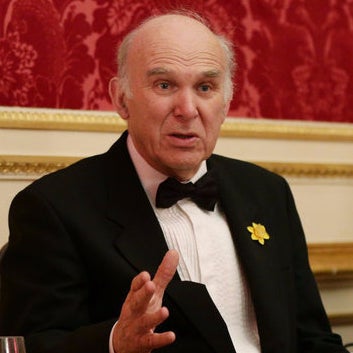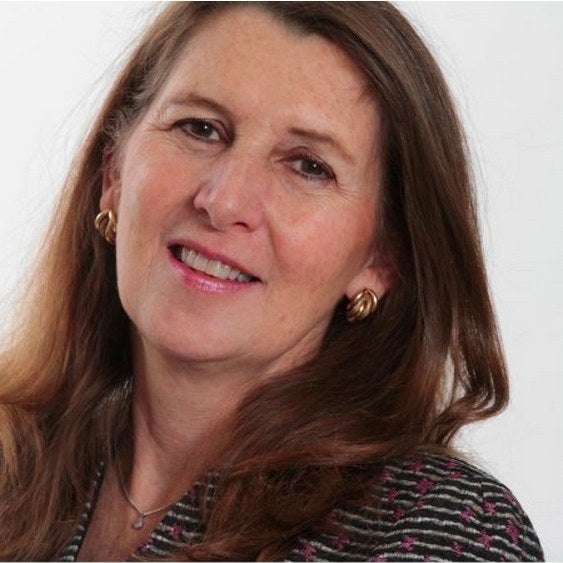
Business and equalities minister Jo Swinson has called on female MPs to be pushy if they want to be promoted.
The Liberal Democrat MP said women should make it crystal-clear to bosses that they want to be considered for senior roles – just as men do.
She told an event last week: "I thought I'd do a good job and then I'd get promoted. It took me a while to realise I had to go and make the case."
In an interview with BuzzFeed News, she explained: "I don't know if it comes more naturally to men or it's more that the culture of doing so is perhaps a bit more male.
"When I go and speak to primary schools in my constituency, nine times out of 10 the first person in the class to put their hands up will be one of the boys and not one of the girls.
"It's that putting yourself forward, putting yourself out there – it's socialised from a really, really early age. I think it's the same when it comes to asking for things like a pay rise."
Swinson's call to arms came as the Lib Dems pushed through new laws forcing firms to reveal the differences in pay between male and female workers.
The party announced last week that it had finally persuaded the Tories to back mandatory reporting for companies with more than 250 staff. The aim is to make firms more aware of their gender pay gap and encourage more women to challenge their employers.
So how were the Conservatives won round after years of resistance?
"Maybe they were incredibly enthusiastic about International Women's Day," Swinson said drily. "Maybe it's the fact there's an election round the corner. Who knows?"
"There are parts of the Conservative party that are frankly stuck in the last century – if not earlier – on the role of women," she added.
Although she praised Tory equalities minister Nicky Morgan, she could barely hide her disgust for MP Andrew Rosindell, who last month suggested that new mothers can't "handle" being cabinet ministers.
"I just can't believe that in 2015 we're still having this debate about whether pregnant women can do their job properly," she said.
Changing such attitudes towards women within parliament will clearly require a greater number of female MPs: Of the 650 people in the Commons, just 148 are women.
"Getting more women elected to parliament is absolutely vital," Swinson said, "because when it comes to ministerial positions, the pool you're drawing from is very unrepresentative to start with."
She is, however, well aware of the Lib Dems' own poor record. Just seven of the party's 56 MPs are female, a measly 13%. That's compared with 33% of Labour MPs – the only party to use all-women shortlists – and 16% of Tories. And many Lib Dems fear the ratio will be even worse after May's general election.


Meanwhile the Lib Dems have been battling with big companies to push them to put more women on their boards.
Business secretary Vince Cable hosted a celebratory black-tie dinner on Tuesday for many of the 160 women appointed to FTSE 100 boards over the past four years. He said "outstanding progress" had been made – but women still only account for 23.5% of board membership.
Cable agreed that many women had been reluctant to apply for board-level jobs. He told BuzzFeed News: "People were not coming forward, and they were not coming forward because recruitment companies were not putting them on shortlists.
"It was probably a vicious circle where there was no talent pool because no talent pool was being identified."
Denise Wilson, who's been working with the government to help achieve a 25% target by the end of 2015, blamed "unconscious bias" – whereby many chairmen recruit people like themselves without realising it.
"I think it's absolutely about recruiting in your own image," she said. "Unconscious bias is most definitely alive and kicking in the workplace. It's the biggest disabler to women getting on.
"It's just simply because we like the sound or look of our own people, don't we. Women have been a lot less visible, look a lot less confident than men, and there's plenty of, 'Oh, she's not quite ready yet'.
"But actually, if you look underneath, many of these women are very, very capable and may not just present as well or not be as 'in your face'."

Companies that pay women less than men often don't even realise they're doing it, Swinson said.
"It's not always some dastardly person with a plan saying, 'Ha ha, we'll pay women lots less,'" she said.
"It's a whole range of different factors, from men negotiating harder to the sectors women go into and how those are valued, to how people are treated when they do take time out."
Wilson believes bosses are now starting to realise how valuable women can be to their boards. "Women are more keen to have a collegiate outcome – they're more supportive of other people's views and opinions and they're less inclined to go with groupthink," she said.
"Women are generally – certainly when they get to their forties, fifties, sixties – they're very comfortable in their own skin, they know themselves, they're not afraid of putting their hand up and saying: 'I don't agree with that'.
"Chairmen say the board meetings last longer but that's not necessarily a bad thing. It's a richer debate, it's a deeper debate."
